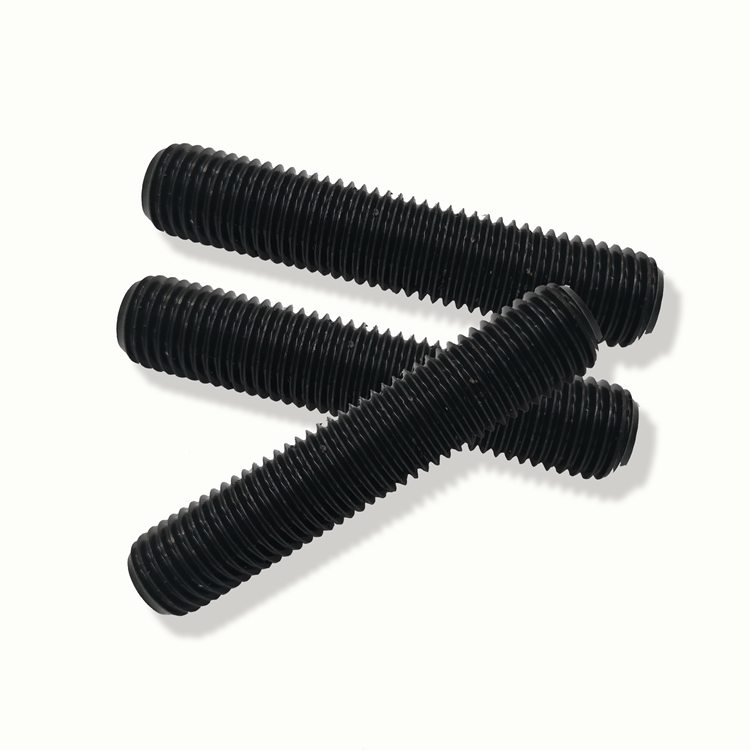Exploring the Leading Manufacturers of 10mm Ball Stud Bolts in the Industry Today
Jul . 29, 2024 16:42 Back to list
Exploring the Leading Manufacturers of 10mm Ball Stud Bolts in the Industry Today
The Importance of 10mm Ball Stud Bolts in Various Industries
In today’s industrial landscape, the demand for precision-engineered components is more crucial than ever. Among these components, the 10mm ball stud bolt stands out due to its versatility and reliability across various applications. This article explores the significance of 10mm ball stud bolts, the factors behind their popularity, and the role of factories in their production.
What are 10mm Ball Stud Bolts?
A ball stud bolt is a type of fastener that combines a traditional bolt design with a spherical ball on its end. The 10mm dimension refers to the diameter of the bolt shaft. These bolts are often used in applications where pivoting motion is required, making them ideal for linkages, joints, and various mechanical assemblies. The spherical end allows for smooth movement and alignment, which is essential in systems that undergo dynamic loads and movements.
Applications Across Industries
10mm ball stud bolts are employed in a multitude of sectors, including automotive, aerospace, manufacturing, and construction. In the automotive industry, they are commonly found in suspension systems, where they facilitate the movement of control arms and other components. The ability to withstand heavy loads while allowing for rotation makes them indispensable in enhancing vehicle stability and performance.
In aerospace applications, the reliability of ball stud bolts is paramount. They are used in critical systems where failure can have catastrophic consequences. The precision involved in the manufacturing of these fasteners ensures that they can withstand extreme temperatures and pressures, which is essential for aviation safety.
10mm ball stud bolt factories

Manufacturers also utilize 10mm ball stud bolts in heavy machinery and equipment. The construction industry, for example, relies on these fasteners to secure various moving parts in cranes, excavators, and other construction machinery. Their durability and strength ensure that they can handle the rigors of heavy lifting and complex movements within these machines.
The Manufacturing Process
Factories specializing in the production of 10mm ball stud bolts undergo rigorous processes to ensure high-quality output. The manufacturing process typically begins with the selection of suitable raw materials, often involving high-strength steel or alloy metals that can endure significant stress and strain.
Once the raw materials are procured, the manufacturing process may include several stages such as forging, machining, and heat treatment. Forging helps in shaping the bolt for increased strength, while machining provides precision dimensions, ensuring the ball stud meets exact specifications. Heat treatment is crucial for enhancing the hardness and toughness of the bolts, enabling them to perform efficiently in demanding environments.
Quality control is another vital aspect of production. Factories implement strict testing protocols to verify that every batch of ball stud bolts meets industry standards. This may involve mechanical testing, inspection for dimensional accuracy, and corrosion resistance evaluations.
Conclusion
The 10mm ball stud bolt is a fundamental component in numerous applications, ensuring the seamless operation of mechanical systems across various industries. With the ongoing advancements in manufacturing technologies, factories are better equipped to produce high-quality ball stud bolts that meet the evolving needs of industries. As manufacturers continue to innovate, the importance of such fasteners will only grow, reinforcing their status as a critical element in the engineering world. Whether in vehicles, aircraft, or construction machinery, these components play a pivotal role in enhancing performance and safety, making them indispensable in modern industrial applications.
Latest news
-
High-Quality Panel Stud Bolt Reliable Panel Stud Bolt Factory & Suppliers
NewsJul.08,2025
-
High-Precision Fine Thread Locknuts Manufacturer & Supplier Custom Solutions
NewsJul.08,2025
-
PH Imperial Stud Bolt – High Strength Fasteners from Leading Supplier & Factory
NewsJul.07,2025
-
High-Quality Allen Wrench Bolts Leading Factory, Company & Suppliers
NewsJul.07,2025
-
Wholesale Ball Stud Bolt - High Quality Supplier & Factory Price Reliable Wholesale Ball Stud Bolt Company
NewsJul.06,2025
-
High-Strength Alloy Bolts Manufacturer & Supplier Quality Alloy Fasteners Factory
NewsJul.06,2025
